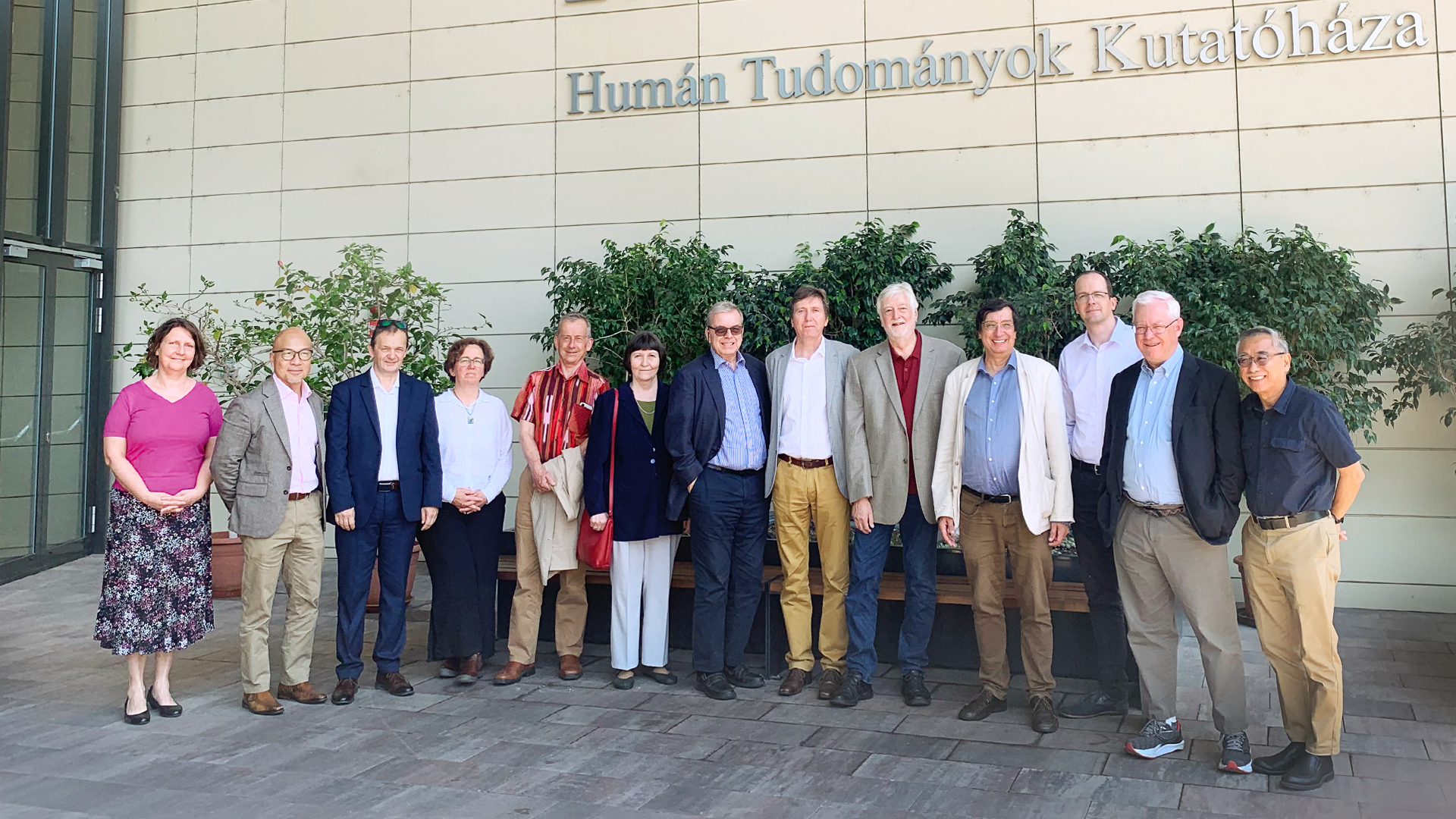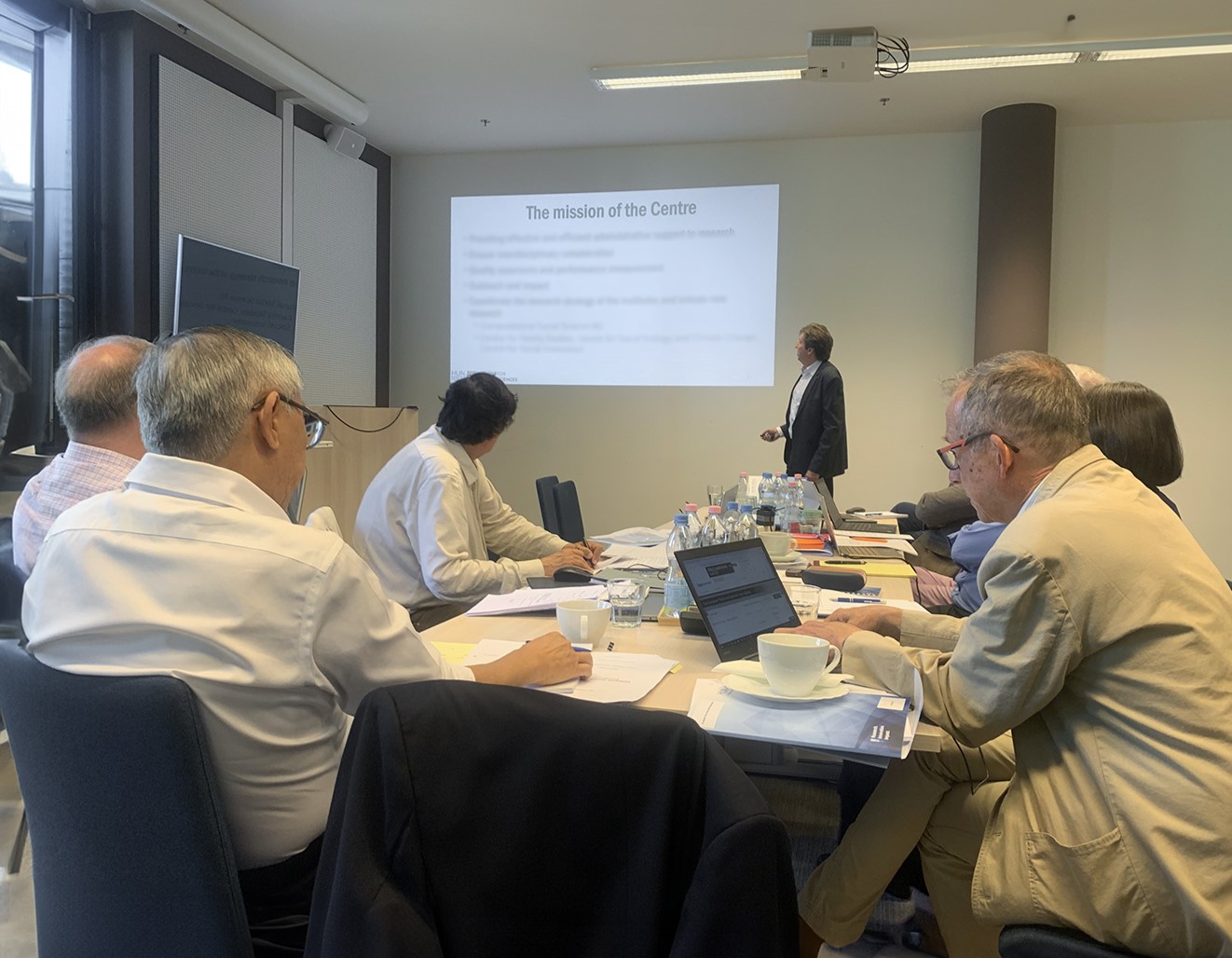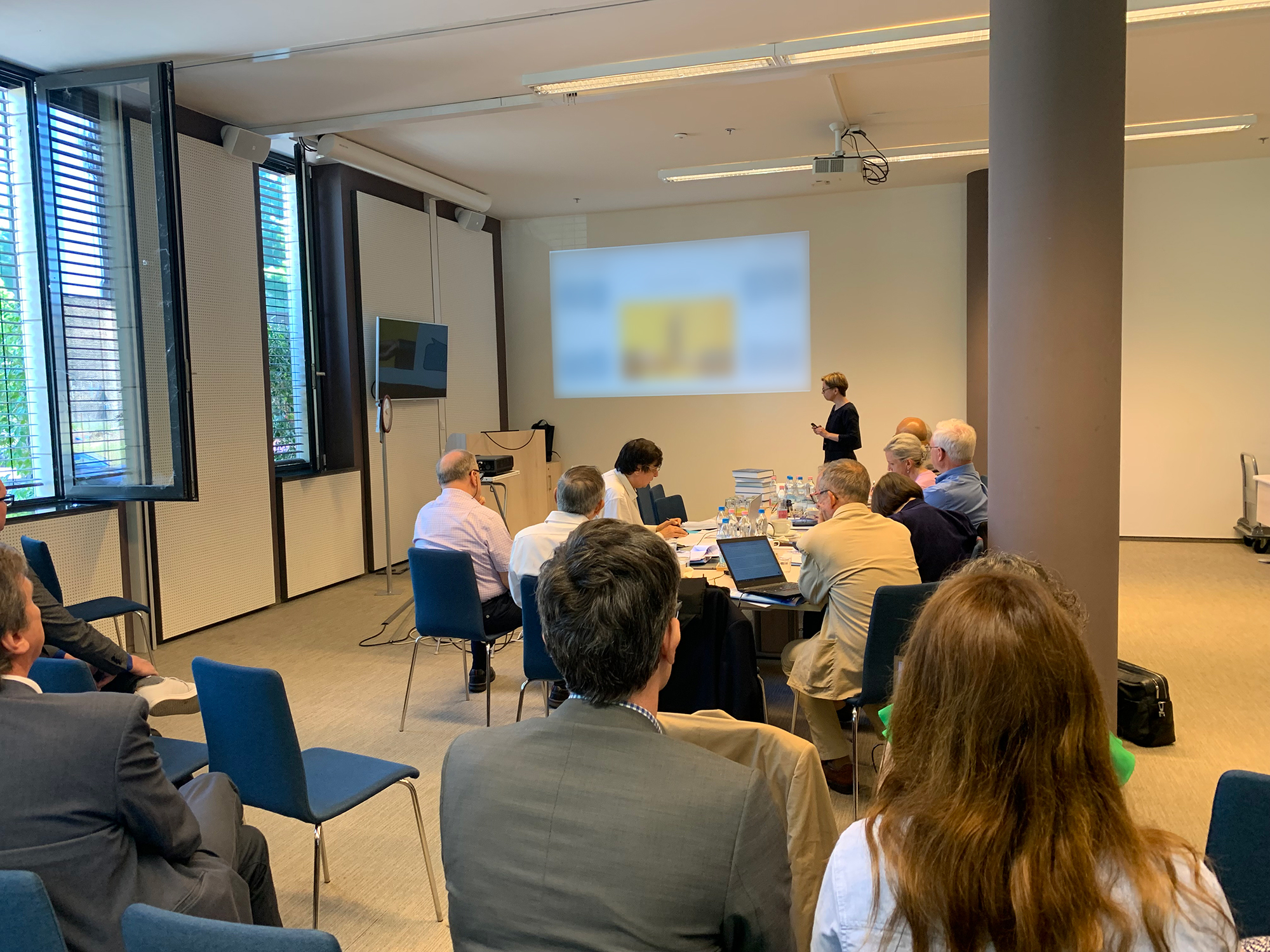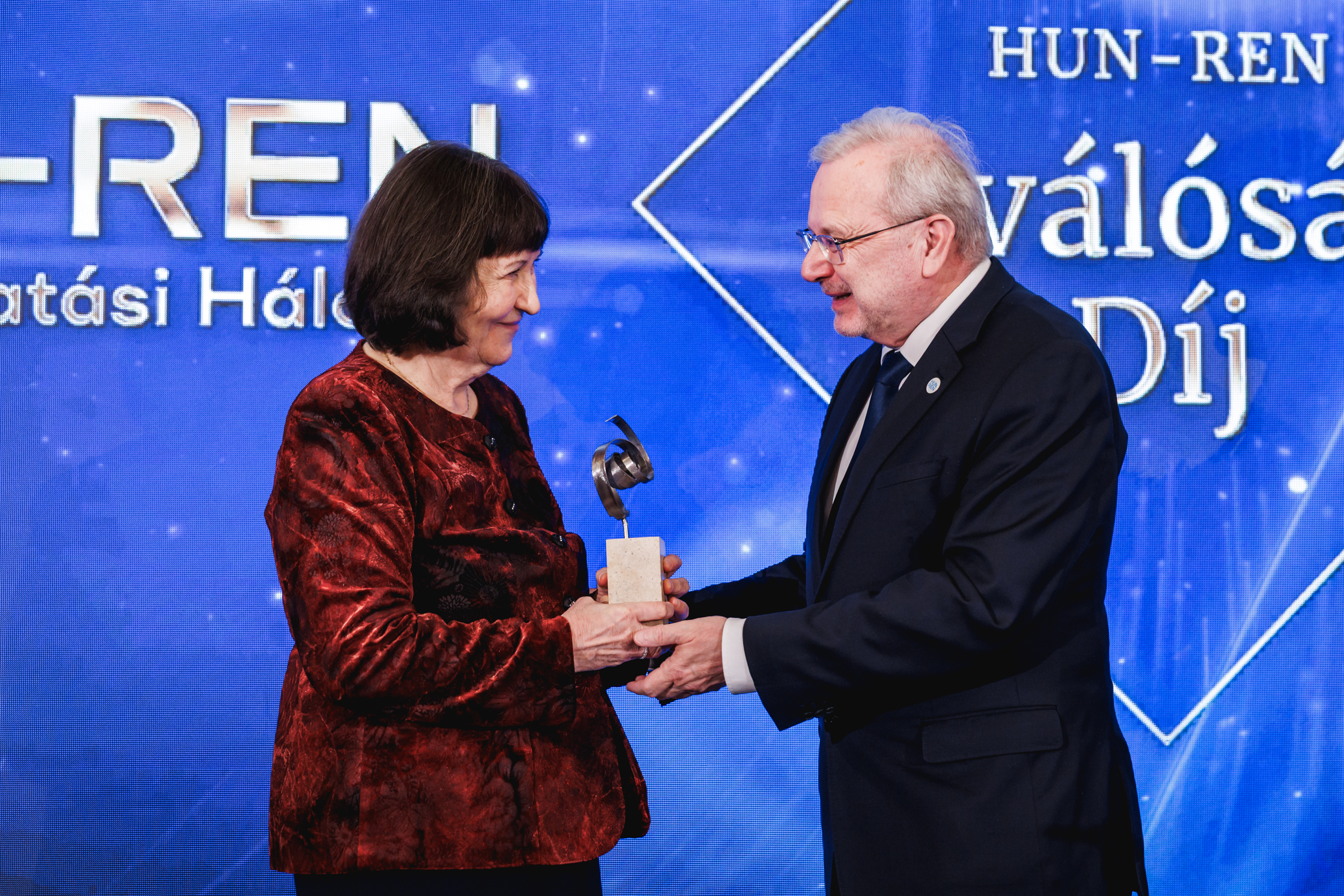Assessment of HUN-REN SHAPE Institutes Commences
The first results of a study, the final phase of which began on 28 May with an overview of the scientific activities of the HUN-REN Centre for Social Sciences (HUN-REN CSS), will be presented in late June at the fourth HUN-REN Strategic Workshop. The six-month on-site evaluation process concludes with assessments of the HUN-REN Research Centre for the Humanities, the Hungarian Research Centre for Linguistics, and the Centre for Economic and Regional Studies.
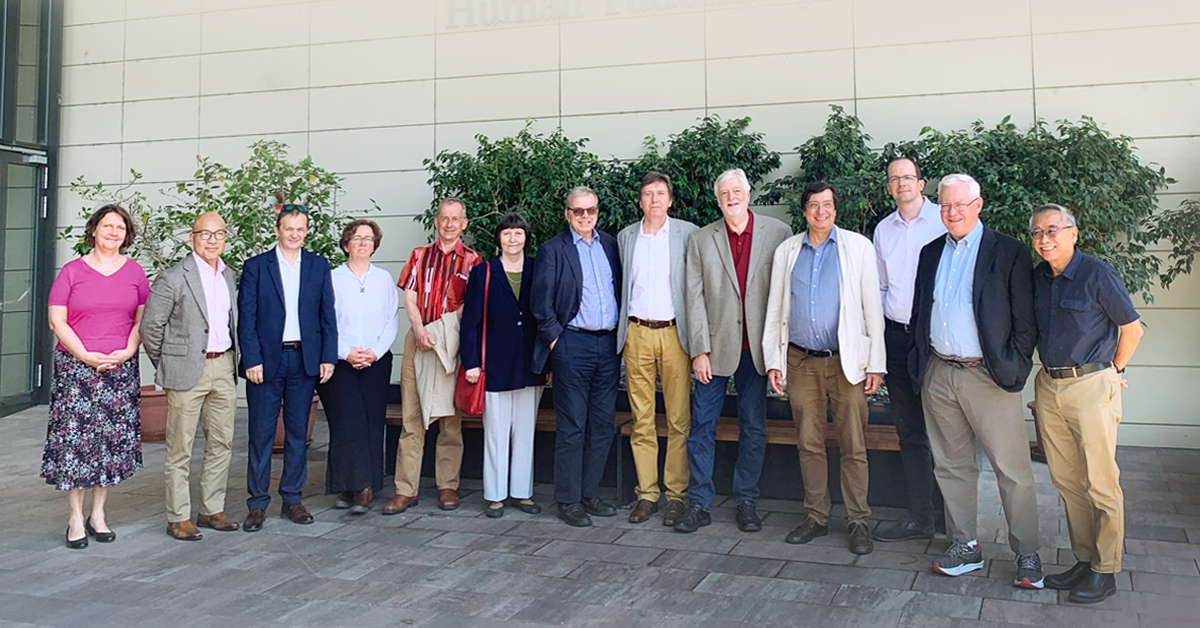
The evaluation of the 49 research institutes operating within the HUN-REN Hungarian Research Network, which began in January, is now two-thirds complete. Committees including internationally recognised researchers visited the network’s LIFE institutions in the first two months of the year, followed by the STEM institutions in the spring. In May and June, the on-site evaluation process concludes with assessments of the scientific activities of the Centre for Social Sciences, the Research Centre for the Humanities, the Centre for Economic and Regional Studies, and the Hungarian Research Centre for Linguistics.
At the meeting held at HUN-REN CSS on 28 and 29 May, Director General Zsolt Boda delivered a comprehensive presentation on the operations of the institution. Subsequently, the directors of the centre’s four institutes—the Institute for Legal Studies, the Institute for Sociology, the Institute for Political Science, and the Institute for Minority Studies—introduced their research activities to the Assessment Committee aligned with the institutes’ profiles. The Committee also familiarised themselves with the tasks and research directions of the Child Opportunities Research Group and the Computational Social Science – RECENS Research Group operating within the centre. This was followed by an opportunity for direct exchange and addressing emerging questions. As with all other sites, the visit concluded with the Committee sharing its initial impressions and key recommendations. Both researchers and leaders have expressed a positive view of the process and are open to the Committee’s recommendations.
The initial results of the evaluation will be presented at the HUN-REN Strategic Workshop IV, scheduled for 26 June. The long-term objective is to develop a new research strategy based on the assessment of the research sites operating in the three main scientific fields, in cooperation with these sites. This strategy aims to enable HUN-REN to transform into the flagship of the John von Neumann Programme announced by the Government of Hungary.
Members of the Assessment Committee evaluating HUN-REN CSS:
Prof. Alexander J.B. Zehnder, Visiting Professor at Nanyang Technological University (NTU), Singapore, Professor Emeritus at ETH Zurich, Switzerland, Chairman of the HUN-REN Advisory Board
Dr. István Szabó, PhD, Deputy CEO for Strategy and Innovation at HUN-REN Headquarters, former Vice President for Science and International Affairs at the Hungarian National Research, Development and Innovation Office, and founder of the Innovation Section at the Hungarian Economic Association
Prof. Dr. habil Petra Aczél, Professor at Moholy-Nagy University of Art and Design Budapest, communication researcher, rhetorical expert, and member of the national Research Excellence Council, the Interdepartmental Standing Committee on Communication and Media Studies of the Hungarian Academy of Sciences, and the Hungarian National Commission for UNESCO
Dr. Mária Gósy, Emeritus Professor of phonetics and psycholinguistics at Eötvös Loránd University (ELTE) and at the HUN-REN Hungarian Research Centre for Linguistics, President of the Humanities and Social Sciences Specialty College of the HUN-REN Hungarian Research Network, and Secretary General of the International Society of Phonetic Sciences
Prof. Joseph Liow (Joseph Chinyong Liow), Dean of the College of Humanities, Arts, and Social Sciences at Nanyang Technological University, Singapore
Sir Philip Campbell, PhD, Knight Bachelor of the British Empire, former Editor-in-Chief of Nature and Springer Nature, member of the HUN-REN President’s Circle, fellow of the International Science Council, and Honorary Fellow of Clare Hall, University of Cambridge (UK)
Prof. Kwok Kian-Woon, Vice-Chancellor of the University of the Arts Singapore (UAS), Professors Emeritus at Nanyang Technological University (NTU), Singapore
Chris Hann, Honorary Professor at the University of Kent, Martin Luther University of Halle-Wittenberg, and University of Leipzig, former Director of the Max Planck Institute for Social Anthropology
Professor Robert Kennedy, former Dean and Goh Tjoei Kok Professor in Business Management at Nanyang Business School, Singapore, and former Dean at Ivey Business School in Canada
Roger Vergauwen, Emeritus Professor of Philosophy at the Institute of Philosophy at Katholieke Universiteit Leuven, President of the Belgian National Center for Research in Logic (NCNL-CNRL), and former Senior Research Fellow at the University of Pittsburgh (USA)
Prof. Dr. Zsolt Szalay, HUN-REN Chief Scientific Advisor for STEM, Head of the Department of Automotive Technologies at Budapest University of Technology and Economics (BME), founder and leader of the BME Automated Drive Lab research group, leader of the National Laboratory for Autonomous Systems at BME, former Head of Research and Innovation of the ZalaZONE Automotive Proving Ground
